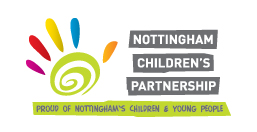KIDS is a national disabled children's charity that provides a range of services across England. Established in 1970, KIDS' vision is a world in which all disabled children and young people realise their aspirations and their right to an inclusive community which supports them and their families.
- What is the KIDS E-learning Package?
- Examples of some of the modules which link with Core Training Standard
- The benefits of the system
- What about testing?
- List of all of the modules contained within the KIDS E-Learning package
What is KIDS E-learning Package?
As well as raising the quantity of workers in the sector KIDS also wanted to raise the quality of the workers and so, to address the particular issue of training needs of KIDS has commissioned over 40 hours of learning. The e-learning package was originally written exclusively for KIDS workers and staff but following a number of enquiries from local authorities it has now been made available to a wider audience. This e-learning package has been written to meet level 2 of the National occupational Standards in Care, Youth Work and Play.
Example of some of the modules which link with the Core Training Standard
If you are interested in completing any of the modules listed in this table or in the full list of modules below, simply ask your Manager to send their Name, Job Title, Organisation, Email Address and Telephone Number to Jeff.Fairfield-Read@nottinghamcity.gov.uk or call him on 01158762772 and he will discuss with them setting you up access to the system.
|
Theme |
E-learning Course Name and Learning Outcomes |
|
Communication and Engagement |
Communication with Children and young people Learning Outcomes:
|
|
Person Centred Planning Learning Outcomes:
|
|
|
Child Development |
Theories on Child Development Learning outcomes:
|
|
Safeguarding & Welfare |
Safeguarding Responding to Possible Abuse Learning outcomes:
|
|
Integrated Working and Information Sharing |
Multi-Agency Working for Front Line Staff Learning outcomes
Multi-Agency Working for Supervisors Learning outcomes:
Information Sharing Learning outcomes
|
|
Supporting Transitions |
Working with Disabled children 14+
|
The benefits of the system
The e-learning package is accessible 24 hours a day 365 days per year, with a simple logging-in system and easy to understand set of comprehensive modules, specifically designed in meeting the needs of disabled children and their families. With over 40 modules available the package is flexible enough to cover a range of different requirements, from those who need a simple introduction and overview, through to those working with disabled children on a daily basis Such an approach within itself offers flexibility in respect of learning and the allocation of staff time in the completion of any identified modules or areas contained within the e-learning package. In addition to this and within the package there are facilities to enable a Manager or Supervisor to effectively track a learner's progress within the programme and the completion of tests Incorporated into this approach is the opportunity for the learner to reflect upon the content of their learning with occasions for reflective practise and exercises for the learner to explore newly attained knowledge and its application in respect of quality and best practice in meeting the needs of disabled children and their families
What about testing?
Each learning module has a test the end. The test is a multiple choice and the questions are chosen at random from a bank of questions that have been written specifically for the e-learning package. In order to pass the module the learner must score more than a specified amount (usually 70%), within the 15minutes allowed to complete the questions. Managers and supervisors will be able to view test scores and the responses to any reflective questions contained within the modules. In addition to this and on the successful completion of the tests, learners are also provided with a certificate to confirm they have passed this test successfully.
List of Modules contained within the KIDS E-Learning package:
STAGE 1 MODULES
- Your Legal Responsibilities when working with disabled children and young people
- Child Protection
STAGE 2 MODULES
- Understanding Your Role and Responsibilities
- Health and Safety
- First Aid
- Understanding and Managing Risk
- Introduction to the role of supervisors(for Supervisors only)
- Supervision of workers(for Supervisors only)
- Home Visiting(for Supervisors only)
- Communicating with Children and Young People
- Developing Relationships with Children and Young People
- Personal Care
STAGE 3 MODULES
- Changing the Perception of men working with Children
- Person-Centred Planned
- Supporting Relationships Between Children and Young People
- Responding to Accidents, Illness and Emergencies
- Safeguarding - responding to possible abuse
- Supporting Transition for frontline staff
- Supporting Transition for supervisors
- Keeping Records
- Keeping Records for Supervisors
STAGE 4 MODULES
- Theories of Child Development
- Positive behaviour management
- Medication and Medical Care: Children and Young People with Complex Health Needs
- Working with Disabled Young People14+
- Life Limiting Conditions: End of Life Care, Loss and Bereavement
- Working in a Team
- Interventions in Play
- Making the Most Of Play
- Observing Children and Young People
- Multi-Agency Working for Short Break Workers
- Multi-Agency Working for Supervisors
- Moving And Handling: Children and Young People who Require Equipment and Adaptations
- Working with Parents and Carers
- Working with Children and Young People with Autism Spectrum Disorder
- Professional and Personal Development
- Project Management
- Managing People in direct work with children and young people
- PECS
- Makaton
- British Sign Language
- Assistive Technology
- Information Sharing (including an overview of ContactPoint)
- Epilepsy Awareness
- Providing overnight short breaks

